Complex talks are under way to evacuate a large number of wounded soldiers from a besieged steelworks in the strategic southeastern port of Mariupol in return for the release of Russian prisoners of war, Ukrainain President Volodymyr Zelenskiy said on Friday.
Mariupol, which has seen the heaviest fighting in nearly three months of war, is now in Russian hands, but hundreds of Ukrainian defenders are still holding out at the Azovstal steelworks despite weeks of heavy Russian bombardment.
Fierce Ukrainian resistance, which analysts say Russian President Vladimir Putin and his generals failed to anticipate, has slowed and in some places reversed Russian advances elsewhere in Ukraine.
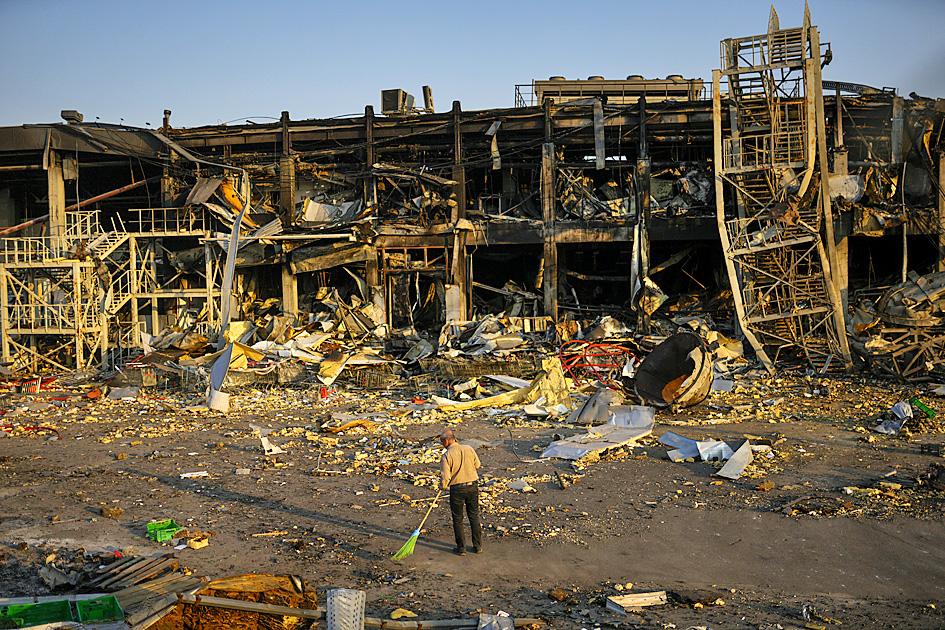
Photo: AP
As well as losing large numbers of men and much military equipment, Russia is also reeling from economic sanctions.
Foreign ministers from the G7 yesterday pledged in a statement to “further increase economic and political pressure on Russia” and to supply more weapons to Ukraine.
They also pledged to “expedite our efforts to reduce and end reliance on Russian energy supplies.”
In a late-night address, Zelenskiy addressed the plight of people trapped at the Azovstal site.
“At the moment very complex negotiations are under way on the next phase of the evacuation mission — the removal of the badly wounded, medics,” he said, adding that “influential” international intermediaries are involved in the talks.
Ukrainian Deputy Prime Minister Iryna Vereshchuk told local TV yesterday that efforts were focused on evacuating about 60 people, comprising the most seriously wounded, as well as medical personnel.
Moscow’s invasion has jolted European security, prompting Finland and most likely Sweden to abandon their long-cherished military neutrality and seek NATO membership.
Russian Deputy Minister of Foreign Affairs Alexander Grushko, quoted by Russian news agencies yesterday, said Moscow had no hostile intentions toward the two Nordic countries, but that it would take “adequate precautionary measures” if NATO deployed nuclear forces and infrastructure closer to Russia’s border.
Despite Ukrainian resistance, Russian forces have made steady gains in southern Ukraine and the eastern Donbas region.
In a grim illustration of the toll on Russia’s own forces, Reuters footage on Friday showed the bodies of Russian soldiers being brought to a rail yard outside Kyiv and stacked with hundreds of others in a refrigerated train, waiting for a time when they can be sent back to their families.
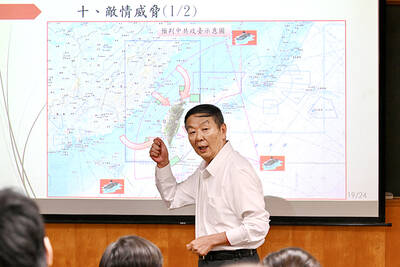
RETHINK? The defense ministry and Navy Command Headquarters could take over the indigenous submarine project and change its production timeline, a source said Admiral Huang Shu-kuang’s (黃曙光) resignation as head of the Indigenous Submarine Program and as a member of the National Security Council could affect the production of submarines, a source said yesterday. Huang in a statement last night said he had decided to resign due to national security concerns while expressing the hope that it would put a stop to political wrangling that only undermines the advancement of the nation’s defense capabilities. Taiwan People’s Party Legislator Vivian Huang (黃珊珊) yesterday said that the admiral, her older brother, felt it was time for him to step down and that he had completed what he
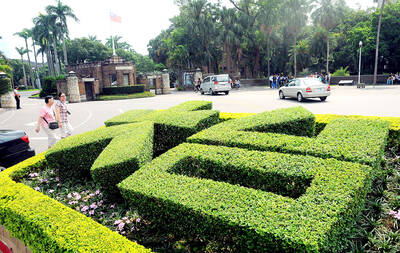
Taiwan has experienced its most significant improvement in the QS World University Rankings by Subject, data provided on Sunday by international higher education analyst Quacquarelli Symonds (QS) showed. Compared with last year’s edition of the rankings, which measure academic excellence and influence, Taiwanese universities made great improvements in the H Index metric, which evaluates research productivity and its impact, with a notable 30 percent increase overall, QS said. Taiwanese universities also made notable progress in the Citations per Paper metric, which measures the impact of research, achieving a 13 percent increase. Taiwanese universities gained 10 percent in Academic Reputation, but declined 18 percent
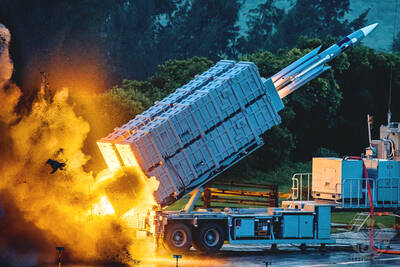
UNDER DISCUSSION: The combatant command would integrate fast attack boat and anti-ship missile groups to defend waters closest to the coastline, a source said The military could establish a new combatant command as early as 2026, which would be tasked with defending Taiwan’s territorial waters 24 nautical miles (44.4km) from the nation’s coastline, a source familiar with the matter said yesterday. The new command, which would fall under the Naval Command Headquarters, would be led by a vice admiral and integrate existing fast attack boat and anti-ship missile groups, along with the Naval Maritime Surveillance and Reconnaissance Command, said the source, who asked to remain anonymous. It could be launched by 2026, but details are being discussed and no final timetable has been announced, the source
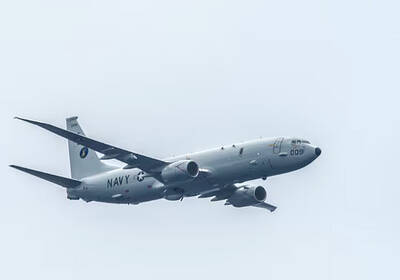
CHINA REACTS: The patrol and reconnaissance plane ‘transited the Taiwan Strait in international airspace,’ the 7th Fleet said, while Taipei said it saw nothing unusual The US 7th Fleet yesterday said that a US Navy P-8A Poseidon flew through the Taiwan Strait, a day after US and Chinese defense heads held their first talks since November 2022 in an effort to reduce regional tensions. The patrol and reconnaissance plane “transited the Taiwan Strait in international airspace,” the 7th Fleet said in a news release. “By operating within the Taiwan Strait in accordance with international law, the United States upholds the navigational rights and freedoms of all nations.” In a separate statement, the Ministry of National Defense said that it monitored nearby waters and airspace as the aircraft